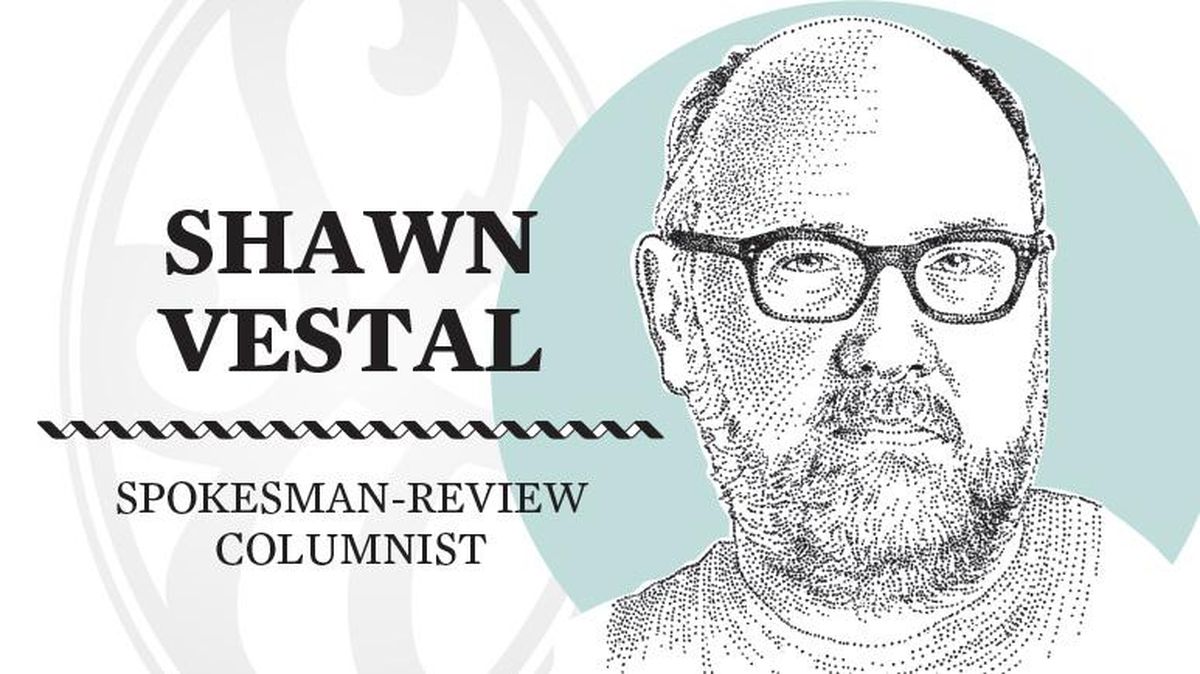This column reflects the opinion of the writer. Learn about the differences between a news story and an opinion column.
Shawn Vestal: There it is again – the center of Spokane is the state’s poorest district

The poorest single ZIP code in the Northwest sits in the center of Spokane.
It’s the 99201 – downtown and West Central. In that ZIP code, according to the latest estimates from the Census Bureau, the median family income is $26,685. The lowest of all ZIP codes in the state, and lower than any other in Oregon or Idaho, as well.
That’s compared to a statewide median household income of $70,979. Spokane County’s is just above $53,000.
Naturally, income figures for downtown Spokane would be driven downward by the homeless population and a concentration of others living in deep poverty. But Spokane also has four of the 10 lowest-income ZIP codes in the state, all concentrated in the city center, and seven of the bottom 50. And eight of the bottom 10 are Eastern Washington ZIP codes, places where deep poverty often results in migration to the nearest city for services.
And none – not a one – of the top 50.
These figures are new, but the phenomenon isn’t. The two economies of Western and Eastern Washington simply aren’t comparable in many ways, and the fact that our incomes – and cost of living – are lower here is not a revelation. But incomes in the city are not just low compared to booming Seattle – they are hovering near the poverty line, indicating that a large proportion of residents are living below it.
The new Census estimates reinforce the reality that the presence of long-standing, deep poverty in this city and region is an underlying – and, oddly, often unmentioned – factor in many of our conversations around homelessness.
Nearly 23% of those living in the city of Spokane fall below the federal poverty level, which is now $25,750 for a family of four, or $12,490 for an individual. Large majorities of our school children qualify for free or reduced price lunches at school, and hundreds of students are homeless, or living on the edge of it.
The roots of this poverty cross generations, and have set down firmly in some of our neighborhoods, playing out dramatically in the lives of our poorest neighbors.
Several years ago, the Spokane County Regional Health District compared health statistics among Spokane’s neighborhoods, and found a stunning 18-year gap of life expectancy between the poorest neighborhood and the wealthiest.
As Catholic Charities notes in an excellent and clear-eyed report on chronic homelessness in Spokane, more than 50,000 people live at or below the poverty line in this city, living a single trauma or crisis away from the streets in a time of rising rents and an opioid wildfire. This underlying poverty spans generations. It is no recent phenomenon.
The report notes a particular population that is relevant to this conversation: the number of older teens and younger adults whose “home life is so unstable, unhealthy, undesirable or unsafe that they prefer to hang around the streets of Spokane rather than being at home.”
A lot of those people aren’t homeless. And unfortunately, some of them, perhaps, just aren’t homeless yet.
The latest Census figures tell a new chapter of a familiar story. They use median household income – the middle point of the entire income distribution among households of all sizes, including those with no income. So it’s useful comparatively, but there are, as with any statistic, limits to what it can tell us.
Beyond the 99201 Census figures
The second-poorest ZIP code in the state is Wellpinit’s 99040, at $26,833, followed by Northport’s 99157, at $28,646.
Spokane’s 99204 ZIP code has the fourth lowest income, at $32,483, and 99202 is fifth, at $34,240. (Pullman is fifth, though the large student population makes it a poor comparison.)
Seventh is the 99207 ZIP code, at $35,714.
The highest-income ZIP codes in the state are two in Sammamish, with median incomes north of $160,000, and Woodinville, at more than $136,000.
It’s a tale of two Washingtons, for sure. But it’s also more than that: An old, familiar tale of Spokane, and of our many struggling citizens living in the heart of the city.
